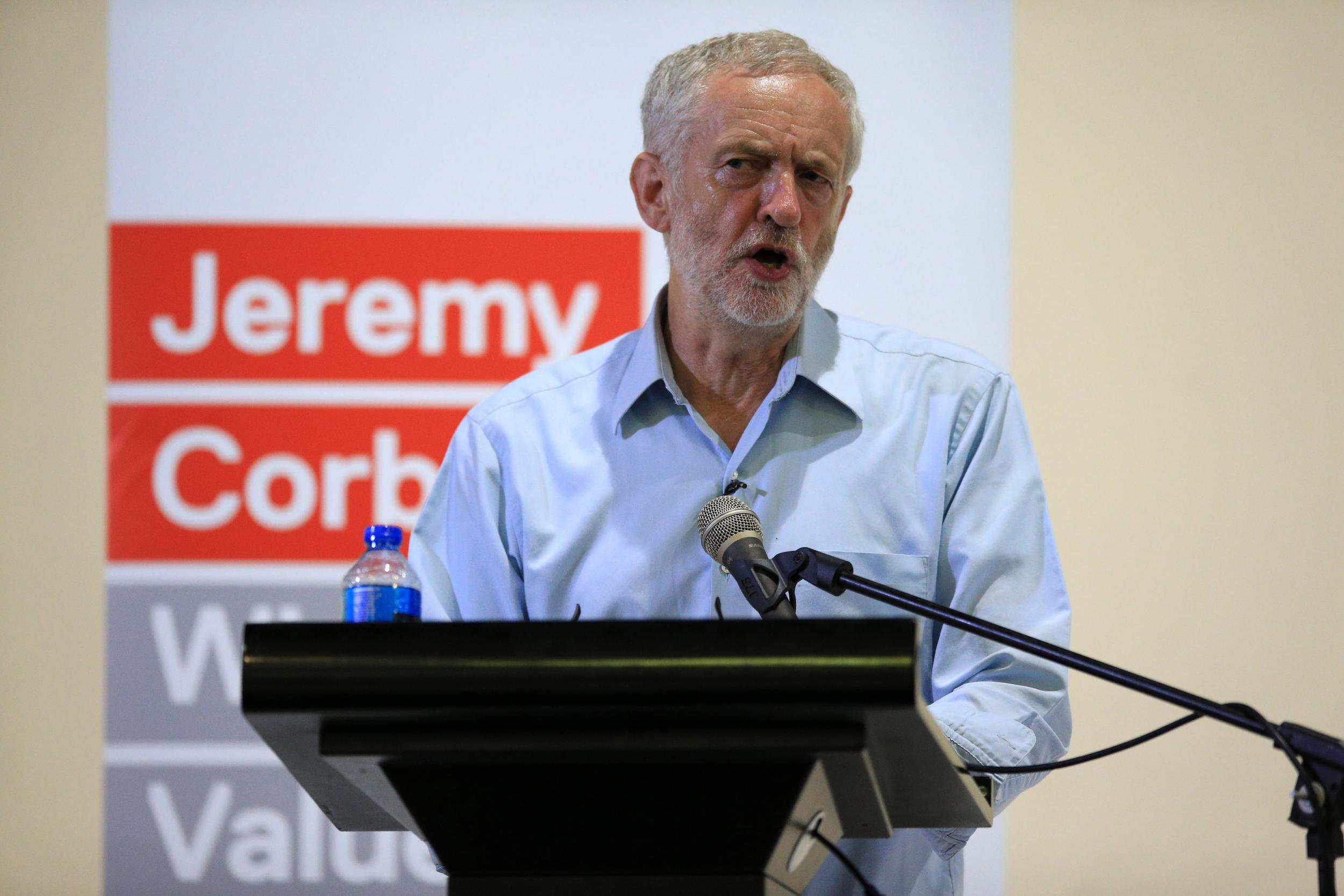Privatisation and outsourcing are draining the NHS of resources that could be used to improve patient care, Jeremy Corbyn has said.
The Labour leader warned that private finance debts and badly negotiated contracts were a significant recurring cost to the health service – and pledged to take the whole system into public ownership if he was elected.
It was reported in 2015 that PFI debts, where a hospital is built by a private company and rented back to the NHS, cost the health service £2 billion a year – or £3,700 every minute.
“Privatisation and outsourcing don’t just erode the founding principles of the NHS – they’re actually a terrible waste of resources,” Mr Corbyn told an audience at University College Hospital in London.
“PFI is robbing money from patient care across the country. NHS trusts are spending vast resources in servicing debt. Social care is being sold to the highest bidder, it’s become disjointed, starved of resources rather than being the integrated, comprehensive service it has to be.
“Too often, there are email disputes between hospitals and local authorities about who is going to care for somebody rather than ensuring they’re cared for as quickly as possible.
“That’s not to say that those who administer it don’t work extremely hard – they do. But they’re starved of resources and they’re under stressed.”
Mr Corbyn is laying out policies in the midst of a Labour leadership contest, following a challenge by Owen Smith. The pair will go head-to-head in a hustings on Thursday evening.
Mr Smith has also said he is supportive of a fully publicly-run NHS.
The veteran Labour MP has long warned that PFI was a mistake even while Labour was implementing it in government. In July 2000 he led criticism in the House of Commons, asking health minster John Denham to consider “the long-term cost to local health services incurred by using private finance rather than public finance for new buildings”.
The Government however proceeded with the policy, debate further warnings in 2001 from the head of the government's own advisory board Sir Stuart Lipton, who said the policy could be a “disaster”.
Labour leadership contest: Jeremy Corbyn vs Owen Smith
Show all 8Mr Corbyn went on to pledge: “The next Labour government will go further than reversing Tory cuts – we intend to deliver a modern healh and social care service, fully publicly provided and fully publicly funded by integrating health and social care into the single system so that everybody gets the care they need when the need to.”
Shadow health secretary Diane Abbott, who also spoke at the rally, suggested that the NHS could work closely with local authorites to tackle issues like housing. For a period during the 20th century housing was previously the responsibility of the department for health.
A press question and answer session after the speech was marred by ill tempers, with Mr Corbyn appearing angry that journalists were asking questions about a row with Virgin Trains.
“This is a press conference about the NHS,” he said. A cameraman also remonstrated with a press officer on Mr Corbyn’s campaign, accusing him of deliberately not calling a journalist for a question about the Virgin Trains row.
Other pledges made by Mr Corbyn and his team during the speech included reversing cuts to nurse bursaries, ending the public sector pay freeze, and not imposing the junior doctor contract “or any contract”.
Responding to Mr Corbyn’s speech a Conservative spokesperson said Labour could not provide a “strong NHS”.
“Whoever wins their leadership contest, Labour are too incompetent and divided to build the strong economy a strong NHS needs,” he said.
“We have put doctors and nurses in charge of deciding who can best provide the care patients need, and the use of outside providers has grown more slowly than under the last Labour government.
“Labour cannot and will not deliver a country that works for everyone.”
Subscribe to Independent Premium to bookmark this article
Want to bookmark your favourite articles and stories to read or reference later? Start your Independent Premium subscription today.


Join our commenting forum
Join thought-provoking conversations, follow other Independent readers and see their replies